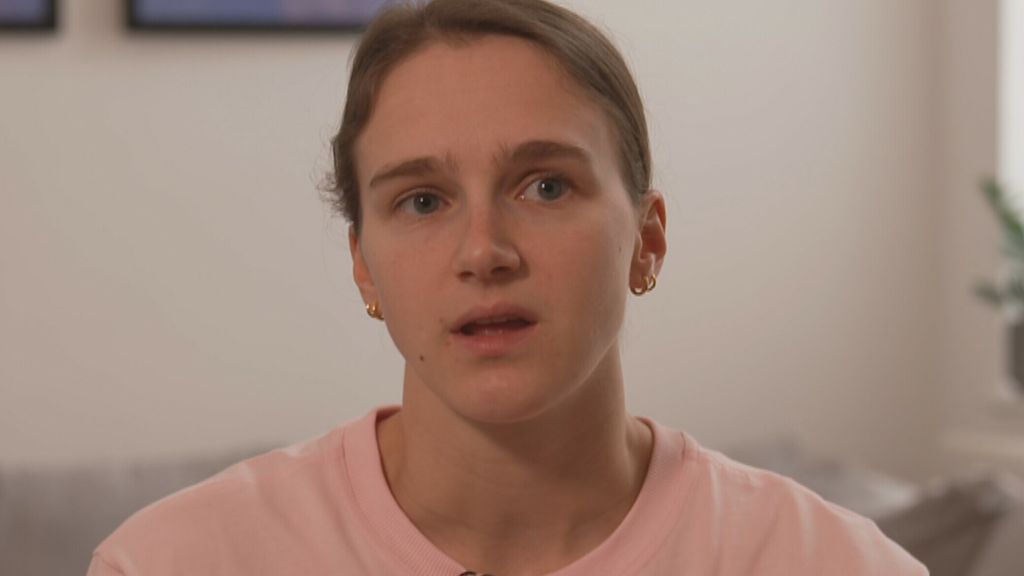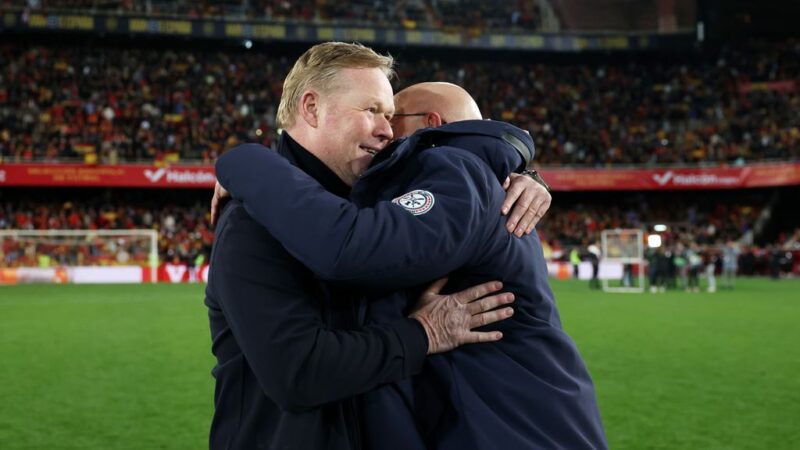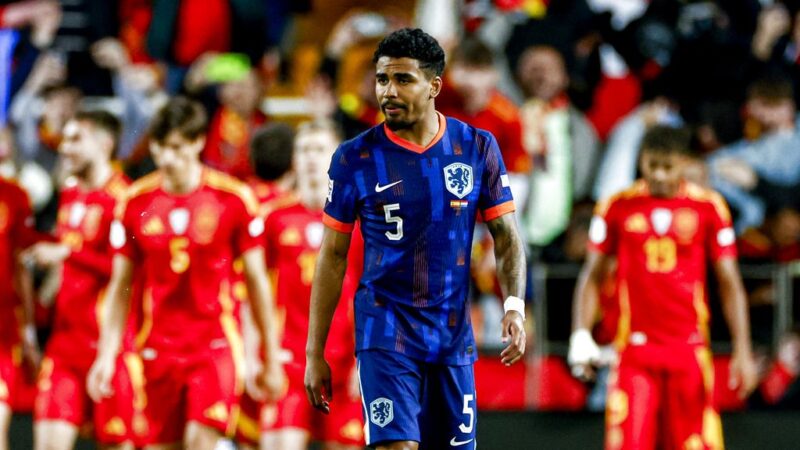‘Discuss every match with Andries’

NOS Football–
-
Rivkah on the Field
Presenter of NOS Sports
-
Rivkah on the Field
Presenter of NOS Sports
As national coach Andries Jonker’s selection takes the next steps in preparation for this summer’s World Cup in Australia and New Zealand, Vivianne Miedema sits at home in a village outside London.
Chances are that after the practice game against Germany in Sittard last night – Orange narrowly lost 1-0 – she was facetiming with teammates. Because even though the best striker Orange has ever had has been sidelined for months with a serious knee injury, she remains involved.

Visiting the most successful soccer couple in the world
Not surprisingly, as she uses the time in addition to her rehabilitation to obtain her coaching diplomas and remains very involved with the Oranje. “Afterwards, I discuss the game with Andries (Jonker, ed.) and a few girls. That way I still try to be an addition.”
Dash through World Cup ambition
She knew immediately that things were wrong last December in the Champions League match between Arsenal and Olympique Lyonnais. A line went through her ambition to shine again at the World Cup. “It’s not realistic for me to make it. And it’s also not fair of me to go along half fit and take someone else’s place. Unfortunately, it comes too soon.”
Occasionally Beth and I can shoot each other
Who replaces Orange’s irreplaceable goal scorer? “Haha, that’s a fun one. It depends on how you’re going to play. That Fenna (Kalma, ed.) can score goals we know. Romée (Leuchter, ed.) also shows it in the Dutch league. Lineth (Beerensteyn, ed.) has already shown it with the national team, but is also a completely different type of player. It is Andries’ job to put the striker in position. And if that happens, then they can all score goals in my opinion.”
Impressive trophy cabinet
Showpiece in the living room of the Mead-Miedema home is the imposing trophy case. Sometimes Miedema and her friend, Arsenal teammate Beth Mead, cast a glance at the trophies. Chances are we are visiting the most successful soccer couple in the world. Both were European champions, both were voted soccer star of the year.
But now they are both sitting at home, with the same cruciate ligament injury. Mead was the first and so is a few weeks ahead in her rehabilitation. “I jumped today,” says Miedema. “Oh really? Good one,” Mead replies.
“Occasionally we can shoot each other,” said Miedema. “But at least you know what you’re going through. You can talk to each other about that you miss soccer. How it was in the gym, how the knee feels. In that respect, it’s still somewhat nice.”
Miedema and Mead’s soccer life stood still for the past few months. And then earlier this year, Mead’s mother, June, passed away. Just before that, her daughter had received the highest honor in British sports: she was voted Sports Personality of the Year.
On the red carpet, Mead and Miedema shone…. on crutches.
Women’s soccer is growing. Expansion of leagues, new competitions, new clubs, but also therefore more matches with club and country. In short, the burden on players has increased considerably.
“I think in women’s soccer we don’t necessarily have to move toward men’s soccer. A lot of things in women’s soccer are done the same way they are in men’s soccer. But actually you have to develop quietly first to be able to take the next step.”
‘Put well-being of players first’
Miedema cites the example of the addition of a Women’s World Cup for club teams and the expansion of the number of countries participating in the World Cup. “These are mainly things that are planned out of profit and entertainment, but the well-being of the players is not considered.”
“Men also play a ridiculous number of games,” she adds. “I think Kevin De Bruyne played 63 games last year,” she says of the Manchester City player and Belgium international. “That’s just a lot …”
According to Miedema, many soccer players are also less able to prepare for the strain of the playing schedule because of inadequate facilities. “At Arsenal we are at the men’s complex and have everything we need. But a lot of clubs don’t even employ a full-time physical therapist, but have 20 players playing soccer on a professional basis. That shouldn’t be possible.”
According to Miedema, a different way of thinking about filling in is needed. “Now clubs think: we hire a part-time physio and take 20 instead of 18 in the selection.”
Maximum of fifty matches
Miedema also appeals to FIFA. “They can stipulate that players can play a maximum number of matches of, say, fifty per year. They can adjust the playing calendar accordingly.” Because with the growing popularity of women’s soccer also comes responsibilities, she believes. “From the outside it’s buzzing, but for players it becomes very difficult to keep this up.”
Is the cruciate ligament injury also a result of this? “I think it has a bit to do with it. I’ve played about four thousand minutes a year for the last 11 years and not many players have done that.”
One solution is to invest in a high-quality premier league, she believes.

Miedema on Eredivisie: ‘We have to be careful that quality doesn’t go down’
“A number of teams are not good enough. We have to be careful that there are not more and more teams, and that the quality goes down.” She talks about that with other Orange players, too. “A lot of girls excel in the league, but then the step to national and international is too big.”
She wonders how you can develop a high-level league with players most of whom are not ready to step abroad. She doesn’t have the answer, but that’s what “the coach in her” wants to work on.
“You don’t realize something like that within now and three months, but I hope we can work toward that in the coming years.”





